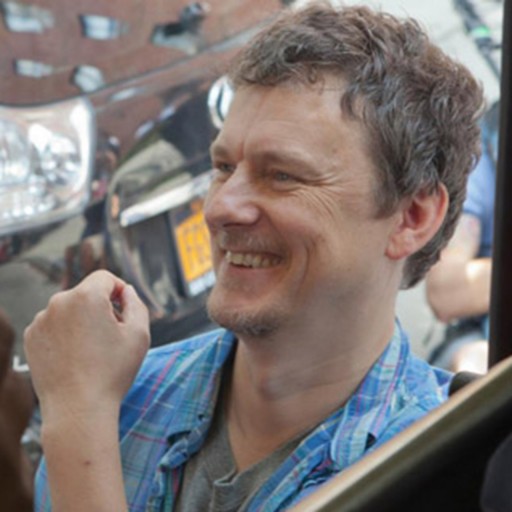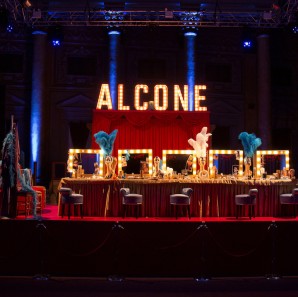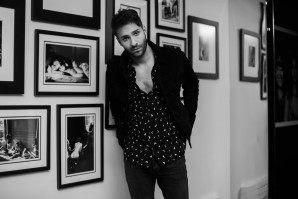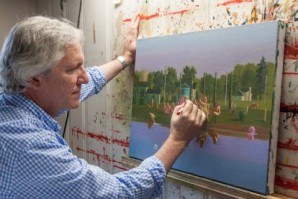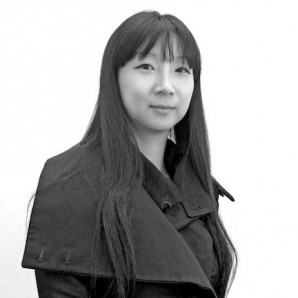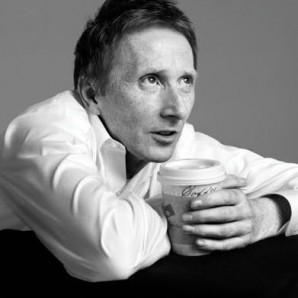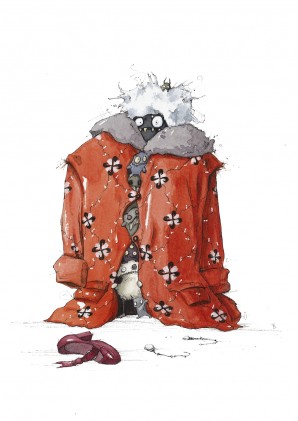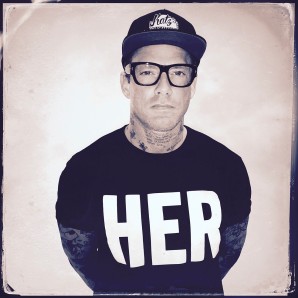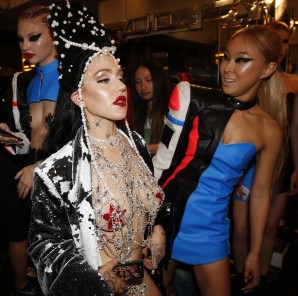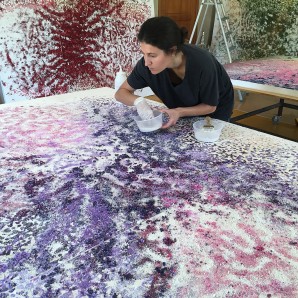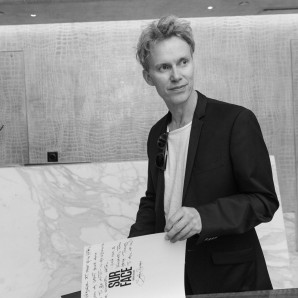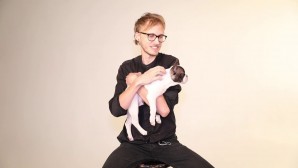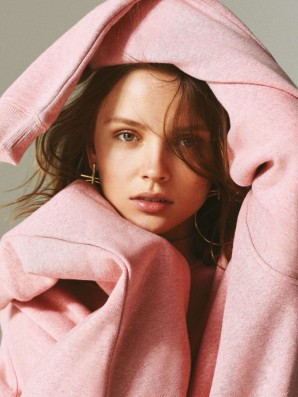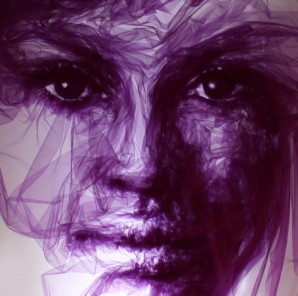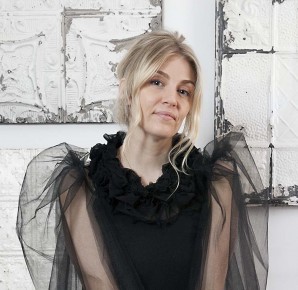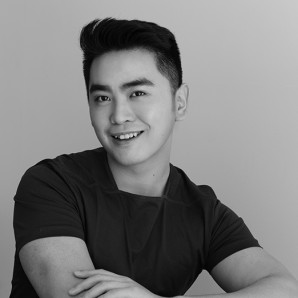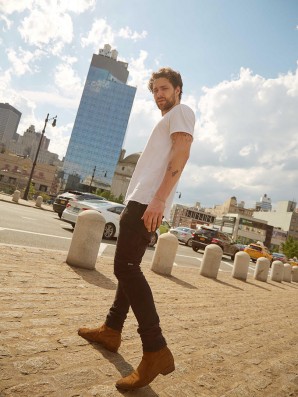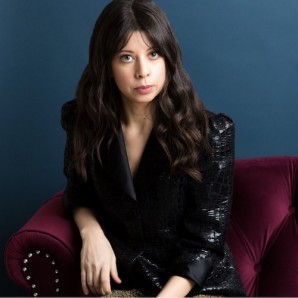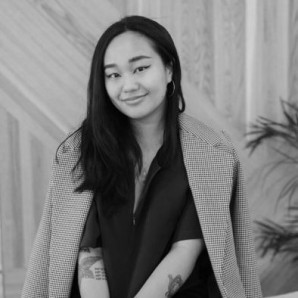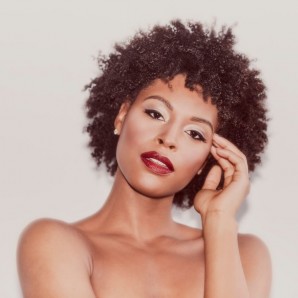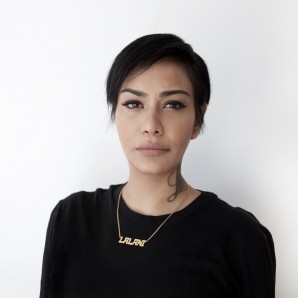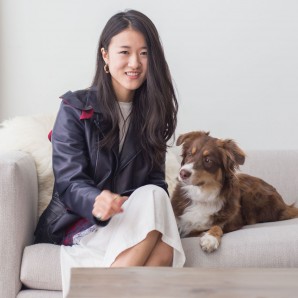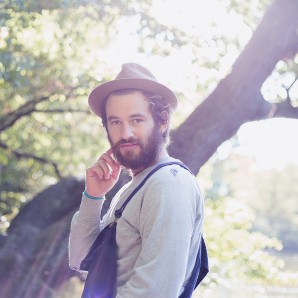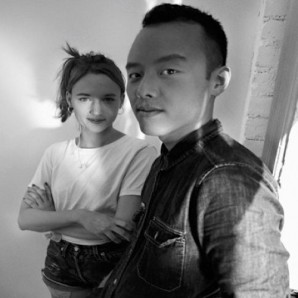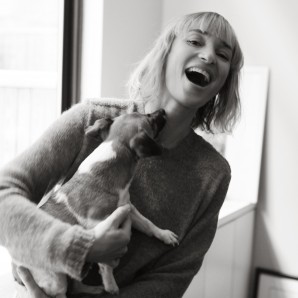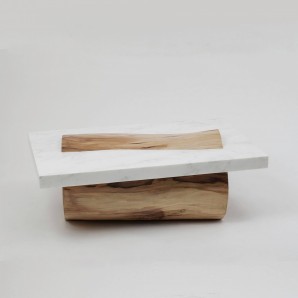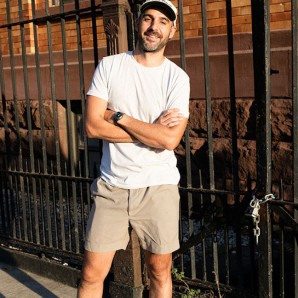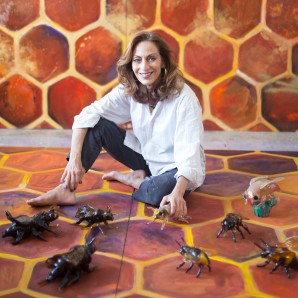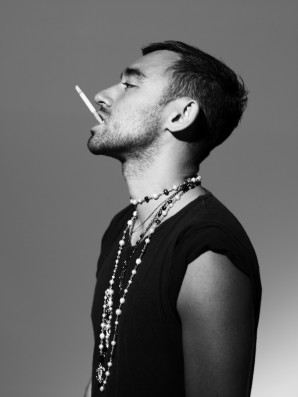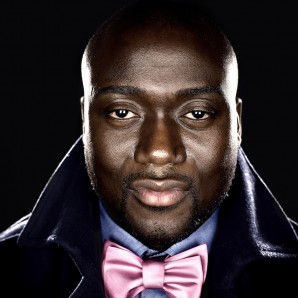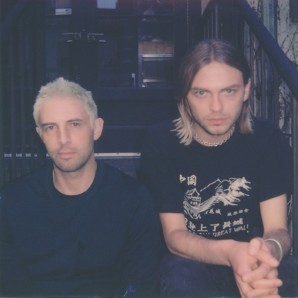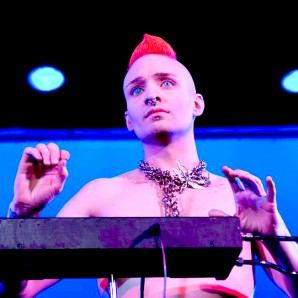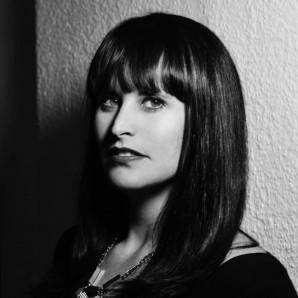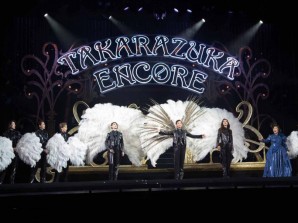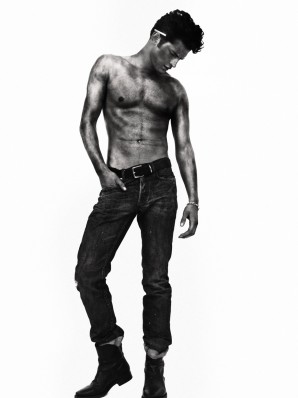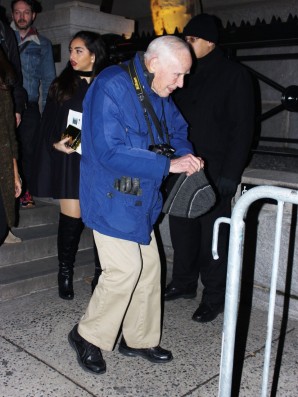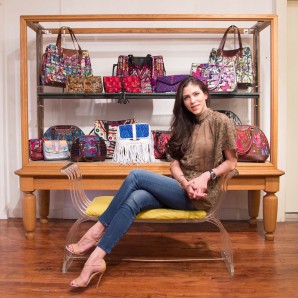No make-up company has a more storied history firmly ensconced in New York showbiz.
MICHEL GONDRY INTERVIEW
“MAYBE WE CAN BE IMMERSED IN MOVIES BECAUSE WE’RE USED TO DREAMING.”
The ever-surprising Michel Gondry flexes his creative muscle by shifting between blockbuster (Eternal Sunshine of the Spotless Mind) and art house films (The Science of Sleep), music videos (Björk: Volumen), and documentaries (Block Party with Dave Chappelle) with equal dexterity. His latest release, The We and the I, combines elements of documentary and fiction, using a cast of amateur actors from a community center in the Bronx and telling their stories over the course of an after-school bus ride. His upcoming Mood Indigo, starring Audrey Tautou and Romain Duris, promises to return us to familiarly surreal Gondry territory.
TWELV spoke with Michel about his recent and upcoming films, the connection between film and dreaming, and the importance of making magic in front of the camera.
How did the idea of The We and the I come about?
I got the idea when I was riding a bus in Paris 20 years ago. I think everyone’s experienced being on a bus when a full class of kids takes over. I paid attention to what was said, and as obnoxious as the situation was in the begin- ning, it got more and more interesting as the kids left the bus. The two last kids were sitting behind me and I could hear their conversation, I saw how the dynamic had changed as kids got off.
What are you working on now?
I’m finishing a movie in Paris called Mood Indigo, based on the very famous French novel called “L’écume des Jours” or “The Foam of Days”. It’s a very romantic story, told in a surrealist way. The feelings of the main character are reflected on the place where they live, their apartment is sort of transforming as this girl is being consumed by her sickness.
How did you get involved in that?
The woman who handles the heritage of this writer came to me and asked, because some of my movies are close to the universe of this writer—which is true because I read it when I was an adolescent and he had a great influence on my imagination.
You’re known for your exploration of dreams, and your incorporation of a lot of surrealistic, dreamlike elements into your work. Why do dreams interest you?
I’ve always been intrigued by them. When I started to make movies, I noticed that the way we dream is closer to the way films are made than to waking life—there is transition, and you can go from one space to another in dreams, when in reality there’s one continuity. Maybe we can be immersed in movies because we’re used to dreaming.
You see a connection between dreaming and film as a medium?
Yeah, it’s the way we forget so quickly when the film starts that it’s a juxtaposition of separate pieces, you forget about that, and forget you’re sitting there watching a screen, and you get absorbed. That’s not how you experience life. In life, you don’t jump from one scene to another.
It seems like something you often explore is the way memories, or stories and ideas, become distorted, and how the distortion ends up becoming a reality.
I think I’m more skeptical than average when someone tells me a story that seems to be extraordinary or magical. I al- ways keep in mind that strong element that’s created when a story is told and repeated. People always forget this element in the equation, that each time a story is repeated a layer is added, so the imaginary can become real.
Do you make use of that in your work?
Yes, I’m very intrigued by that. Let’s say somebody is talk- ing to me and because of my lack of good English, I have to be creative to keep making sense, to keep understanding the conversation. This work, I find quite creative—you have a glimpse of continuity and then you have to create bridges from your own imagination to try to make sense of some- thing. A lot of optical illusions come from that. Your brain is really wired to interpret and make sense of everything you see, so when you see an image that doesn’t make sense to you, you try in different ways to make sense out of it. You create a sort of new reality to explain what you’re looking at.
And illusion is especially interesting in your work. I was just watch- ing the music video you did with Paul McCartney and your expla- nation of how it was done—how you created the effect of ghosts us- ing reflections of people in glass while you were shooting. You make the illusion material, which is rare now in movies.
Now when you see a screen, you’re expecting to see any- thing possible. You can’t be surprised because you know images can be built from scratch. But if you look at reality and see something illogical, you have to figure it out. Even though the work I do ends up on the screen, I try to create that feeling of disbelief before the image is shot and pro- jected. You can always believe something was done in post- production, but if those images are created in reality, you can feel the effect; you feel that the magic existed before it was shot and the camera was just there to transmit it.
It’s very ropes-and-pulleys, real magic.
It’s like when you’re watching puppets, you know they’re controlled by strings, but they have a very sort of scary life— even though you know how it’s made you can’t help but feel that the puppet is alive. I try to create that when I create an effect for the screen.
What’s something you hope for all your work to accomplish?
I think it’s about how I try to portray a character in the story. I want them to remain as human as possible. In any context or any story I’m trying to tell, I want to keep the human- ity. That’s the most important quality to me, the feeling of closeness to the actor or the character when you watch the film.
Where do you create that feeling? Does it start in the writing?
It happens in all the stages, the writing, the shooting, the acting, the directing. This particular element maybe hap- pens more during the shooting. I try to get people to be themselves as much as I can.
How has your work evolved since you began as a director?
I’ve been going back and forth between bigger and smaller movies and between documentaries and fiction, and I al- ways try to learn from one project and apply it to another. I try to make the moment happen in real life, so when you’re watching the movie you don’t feel you’re being told a story step-by-step, you feel like you’re watching life unfolding. But analyzing my own film is really next to impossible, be- cause I have memories of the experience from the begin- ning. Even when I watch movies by other people, some- times I have to forget about the process.
As a director is it difficult to objectively watch movies by other di- rectors?
Not always, but very often. I remember one day before I was a director, I realized that for every image you see on TV or in a movie, there’s an actor, there’s a camera, and then behind the camera there are fifty people watching silently. I’m very sorry, I shouldn’t have told that to you. Next time you watch a movie it’s going to kill it for you.
I know, you’ve ruined it!
I’m so sorry, I’m sure you’ll forget again after a while.
WRITTEN BY CHARLOTTE O’DONNELL
EDITED BY ERINA NAKAZAWA
related posts
Alcone 65th Anniversary @Capitale: Interview with CEO Maria Stewart
Ikemen #35: Zaher Saleh
IKEMEN (ē´k´mɛn): Japanese Slang
"REALLY, REALLY, RIDICULOUSLY GOOD LOOKING PEOPLE"
Interview: Neurosurgeon-turned-Artist Keith Kattner on the Surgery of Classical Painting
Dr. Keith Kattner does not have the typical background one would expect of a successful neurosurgeon.
New Type #27: Nika Tang Interview
San Fransisco-based designer Nika Tang has emerged as boldly committed to her ideology as to her pieces. Her namesake brand centers...
Interview: Becky Donnelly's Fashion Creatures
Quirky girl from Dublin with a penchant for drawing fantasy creatures relocates to London after art school.
Kaimin Interview & S/S18 "Slut from the Future" Presentation @ the Top of the Standard
Pulsing with a heavy beat and hazy with a deep rouge glow, the Top of the Standard is as glamorous a place to be as ever. And tonight it is packed with partygoers.
Yasmina Alaoui Interview & Opera Gallery Exhibition
Yasmina Alaoui burst onto the international arts scene in 2003 with "Tales of Beauty," a collection of nude...
Søren Solkær Interview
Stepping out of a cab into the urban symphony of Midtown, the entryway to The Quin Hotel was easy to spot— with classic architecture and...
Kyra Ross of Mona Liza Studios Interview
TWELV sat down with the charismatic Kyra Ross, founder of Mona Liza Studios which falls under his larger moniker "...
Ira Sumbaeva Interview
TWELV sits down with model Ira Sumbaeva to give a glimpse into the story of the cutest Belarusian...
Benjamin Shine Interview: Master of Tulle
Benjamin Shine is an award-winning international artist whose work stretches across industries from fashion...
New Type #25: Mémère – Sarah LeBlanc Interview
Upon arriving to the Mémère studio, it felt like stepping from the bustle of New York City...
IKEMEN #34: GABRIEL LIBERTY
IKEMEN (ē´k´mɛn): Japanese Slang
"REALLY, REALLY, RIDICULOUSLY GOOD LOOKING PEOPLE"
NEW TYPE #23: ANE AMOUR – IYALA ANNE INTERVIEW
“Introducing a talented designer giving sophisticated femininity an edge”
NEW TYPE #22: Allina Liu INTERVIEW
Born and raised in New York City– we could also add, "in love with”– Allina Liu is a refreshing womenswear designer, who questions the...
NEW TYPE #21: Kendall Miles INTERVIEW
“My passion is shoes. Kendall Miles shoes are beautiful, alluring and handcrafted in Italy: the perfect pair for the woman who knows who she is and where she wants to go.”
NEW TYPE #20: Shahista Lalani INTERVIEW
"Introducing an emerging designer creating captivating leather fashions."
NEW TYPE #19: PAMPLEMOUSSE - Danica Zheng Interview
“Introducing a dedicated, innovative designer to awaken every woman’s inner voice.”
NEW TYPE #18: BOOM DONE SHOP - LIAM BERGIN INTERVIEW
“Introducing the new hot British ethical apparel brand BOOM DONE SHOP”
NEW TYPE #17: NAMILA - NAN LI AND EMILIA PFOHL INTERVIEW
NAMILIA was founded in 2015 by Berlin based designers Nan Li and Emilia Pfohl. The duo met while attending University of the Arts Berlin.
Isabel Dupre Interview
Isabel Dupre Interview is now available!
Check inside for the Full Page Interview.
IKEMEN #33: DANIEL VIEDMA
IKEMEN (ē´k´mɛn): Japanese Slang
"REALLY, REALLY, RIDICULOUSLY GOOD LOOKING PEOPLE"
Judi Harvest INTERVIEW
“We’re all bees, we need to dance more and always search for beauty,” Judi Harvest proclaims.
BEHIND THE SCENES #4: Nicola Formichetti
TWELV's Behind the Scenes takes a step back and visits the masterminds behind the camera.
IKEMEN #32: TERRY DOE
IKEMEN (ē´k´mɛn): Japanese Slang
"REALLY, REALLY, RIDICULOUSLY GOOD LOOKING PEOPLE"
Name: TERRY DOE
NEW TYPE #16: LINDER - SAM LINDER AND KIRK MILLAR INTERVIEW
“Introducing a new generation of quick and fresh minded designers”
IKEMEN #31: CORNELIUS LOY
IKEMEN (ē´k´mɛn): Japanese Slang
"REALLY, REALLY, RIDICULOUSLY GOOD LOOKING PEOPLE"
Takarazuka CHICAGO Cast Members Interview
“All Japanese, All Women, All that Jazz! We interviewed three cast members of Takarazuka CHICAGO who preformed in the Lincoln Center Festival in 2016.
Sean O’Pry EXCLUSIVE INTERVIEW "Good Ol’ Georgia Boy”
SEAN O’PRY EXCLUSIVE INTERVIEW
"GOOD OL’ GEORGIA BOY”
R.I.P. Bill Cunningham
Bill Cunningham, Iconic Street Style Photographer, Passes away at 87
NEW TYPE #14: Alida Boer - Alida Boer Interview
TWELV Magazine sat down with Alida Boer in NYC to get to know the designer and better understand the intricacies of her designs and company’s mission.

